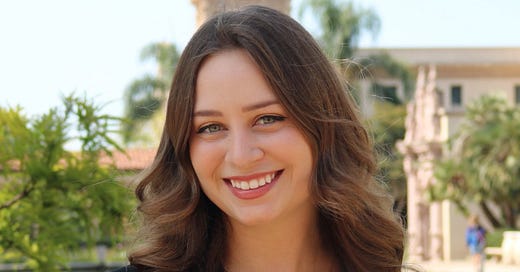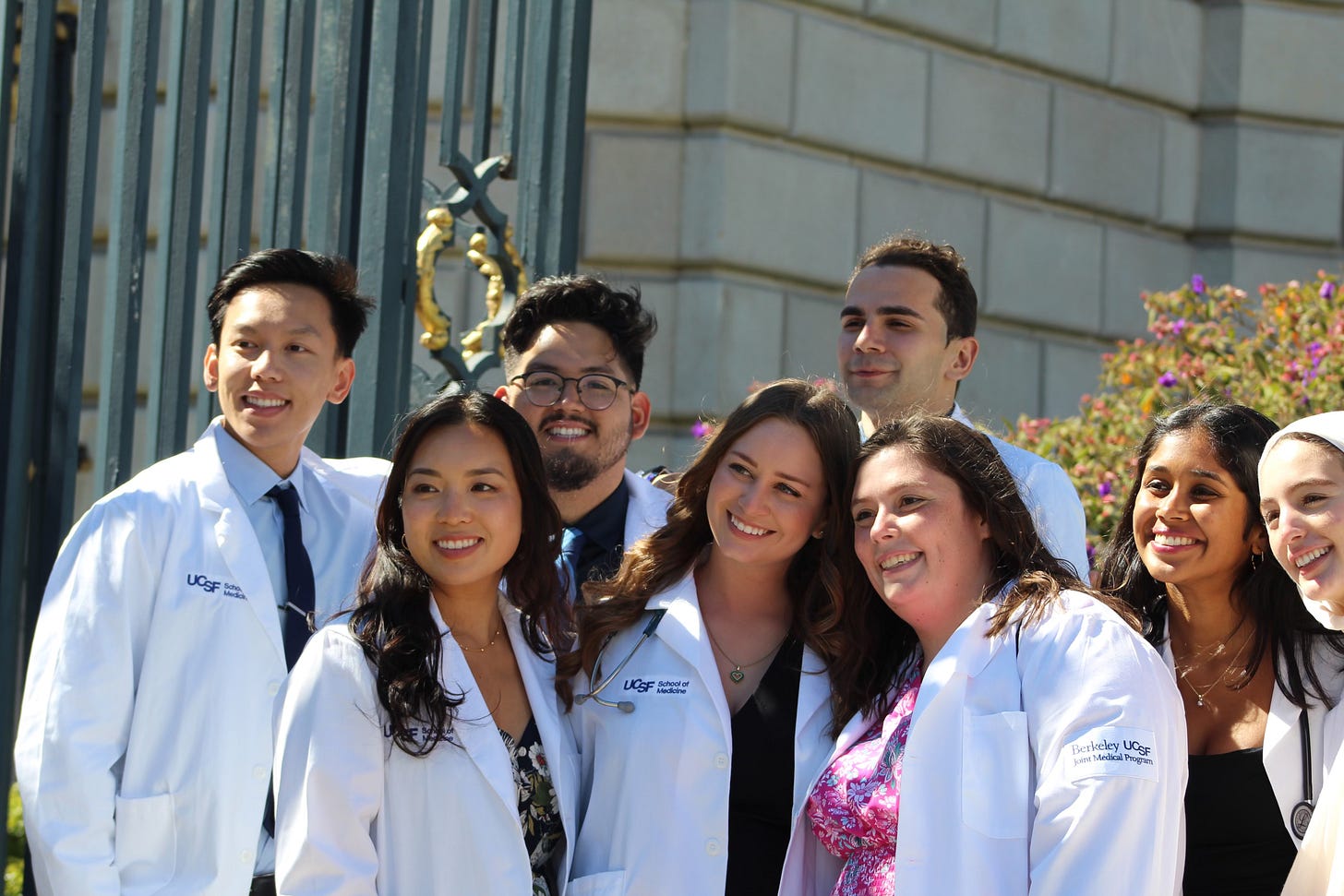A UCSF Medical Student’s Journey into Healthcare Design: Meet Angelica McDaniel
Written by Harita Yepuri, BS
Angelica McDaniel is a current third-year medical student at the University of California San Francisco (UCSF), on track to complete a unique five-year program, the Joint Medical Program with UC Berkeley’s School of Public Health. By the time she graduates, she will have both “MD” and “MS” following her name, signifying her dedication to the intersections of medicine, patient-centered care, and public health.
Along with her master’s and medical coursework, Angelica conducts research with The Better Lab (TBL) at UCSF, a design lab dedicated to applying Human-Centered Design (HCD) to address healthcare challenges, focusing on underserved populations. Her work in the lab explores social and humanitarian factors in surgical care, inspiring her master’s research project on Trauma-Informed Perioperative Care.
Let's take a closer look at Angelica's journey towards becoming a physician, and how HCD is one piece of the puzzle!
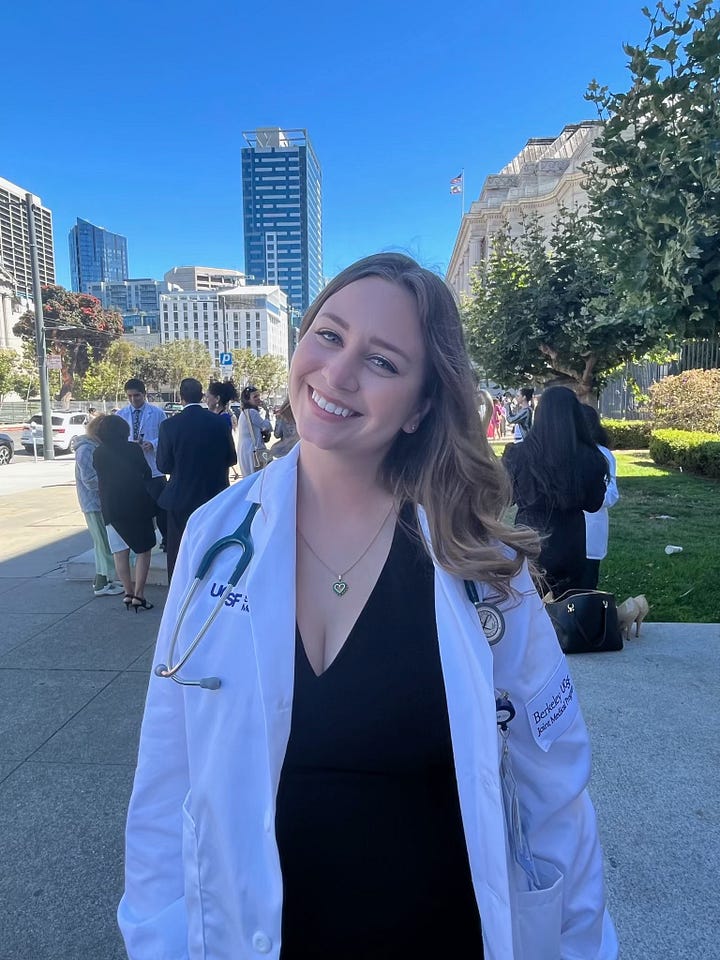
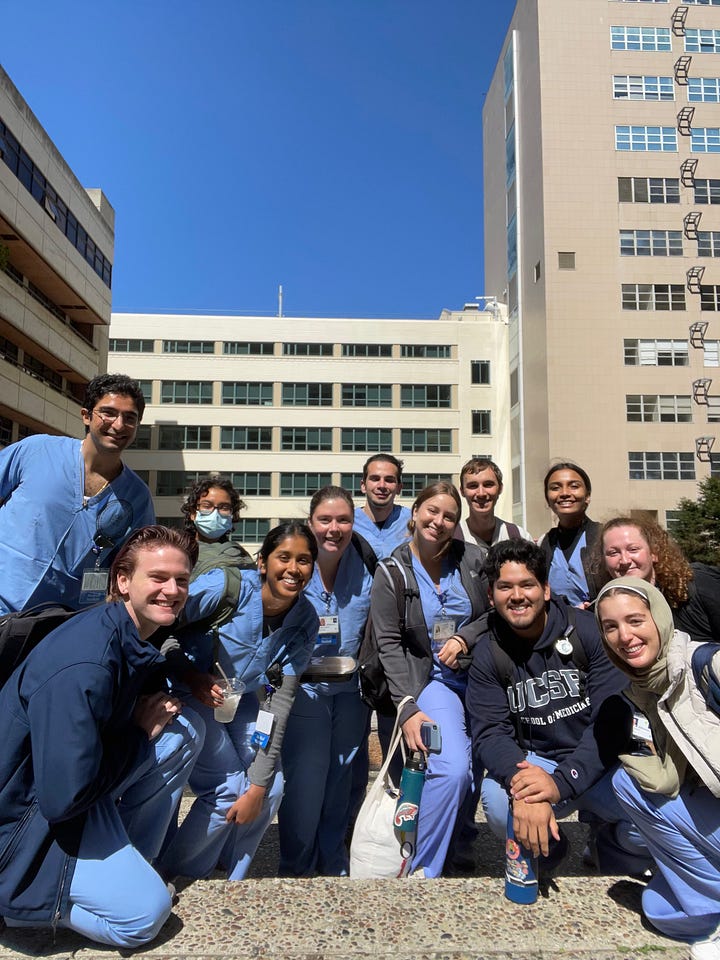
How It All Began…
From a young age, Angelica felt drawn to becoming a surgeon. Her early experiences volunteering at a local hospital and working as a medical assistant for a neurosurgeon offered her a firsthand view of how impactful surgical care can be.
“Just seeing how he was able to change peoples’ lives with his hands was incredible,” she shares. “To do the same, I understood the only way would be through medical school - a decade of training.”
Whether it was collaborating with the nursing team or assisting patients with basic tasks like walking to the restroom, Angelica credits her early exposure to solidifying her commitment to a career in medicine. Reflecting on those moments, she says, “The people you meet and the small relationships that you build, I don't think you get that in any other career. The people really pulled me towards pursuing medicine.”
In college, Angelica found her greatest mentors as a teaching assistant under a retired cardiothoracic surgeon. The course, focused on mental health in medicine, helped Angelica understand that the field extends far beyond clinical practice. There are many avenues and meaningful ways to contribute to the field, whether it’s research, academia, or even guiding students through college. When asked if she still stays in touch, Angelica mentioned that she still updates him every couple of months, “I feel like these mentors become family to you. They become so invested in your success as well, and it's really nice to have cheerleaders throughout.”
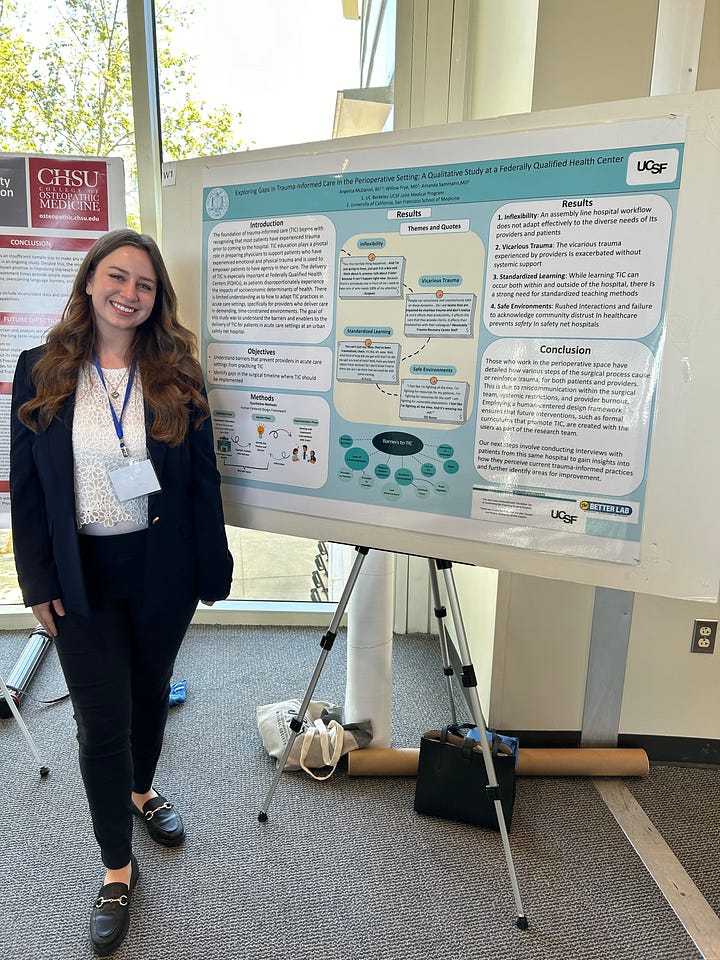
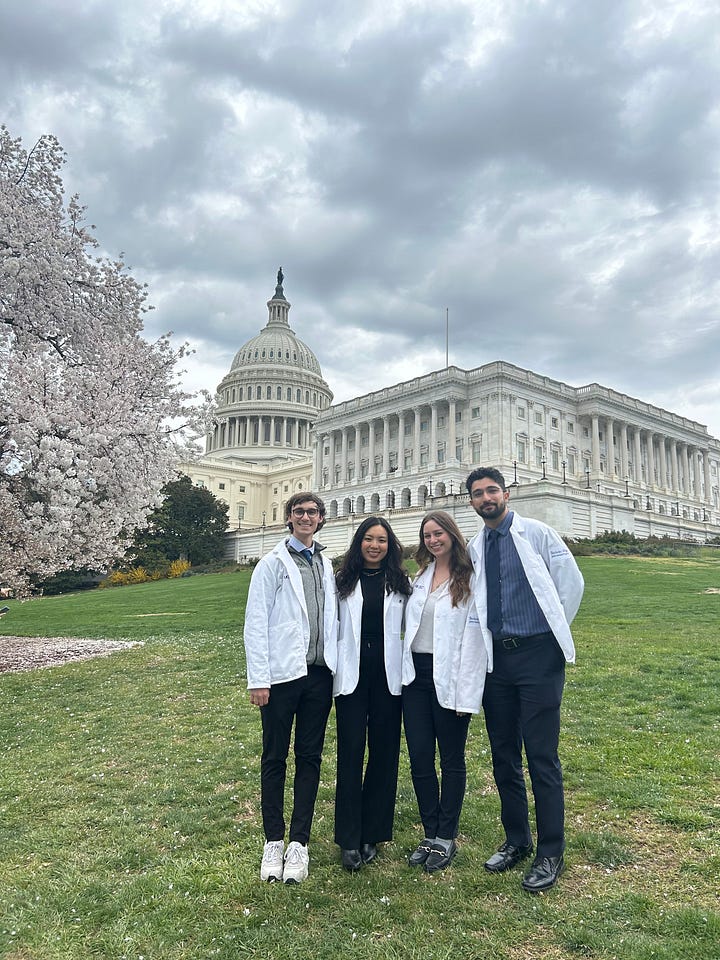
The Better Lab: What It’s Like Doing Research as a Medical Student
As part of the Joint Medical Program, Angelica had to take on a research project as her thesis. She chose to focus on safety-net hospitals, which provide care to individuals regardless of their ability to pay. She explains, "It was really important for me to work in a hospital that focused on what the patients needed, and not what the hospital needed financially." Angelica has found a home at The Better Lab, or TBL, where the focus remains on addressing the unique challenges of safety-net healthcare systems. She values these hospitals for their essential role in providing care to all, regardless of financial means.
TBL focuses on reimagining healthcare design, through various projects that immerse researchers in clinical settings to observe, engage, and understand the everyday experiences of patients. Projects use human-centered design (HCD) methodology to co-design with stakeholders, prototype solutions, test interventions, and iterate on feedback to develop solutions that align with the lived experience and real processes of patient care. One such project involves improving trauma-informed care (TIC) in fast-paced acute care settings like emergency and surgical environments, where adapting TIC practices remains a challenge. Using HCD methodology, Angelica and her team conducted interviews with surgical providers at ZSFGH during the Inspiration phase to better understand how care is adapted for trauma-affected patients. In the Ideation phase, they plan to analyze key themes, brainstorm ways to enhance TIC, and prototype solutions tailored to the unique demands of these settings.
Angelica credits her mentorship at TBL for her growth – over just the first few months of her traineeship, she learned how to write a study protocol for UCSF’s Institutional Review Board, pitch a research project, and write background research sections for scientific papers. As The Better Lab grew, new team members Marianna Salvatori (TBL Design Director) and Adrienne Greer (TBL Operations Director) trained her in Human-Centered Design (HCD) best practices, including semi-structured empathy interview methods and thematic coding. Dr. Christiana von Hippel, TBL’s Research Director, mentored her on how to structure scientific manuscripts and identify potential peer-reviewed journals that could be a fit for publication. Through these experiences, Angelica gained a deeper understanding of the complexities involved in research and the importance of asking for help: “There’s a secret curriculum for research in medical school that not everyone knows, which is kind of sad but you have to learn on the job. One of the most important things I have learned is how to ask for help, because you don’t know what you don’t know.”
Balancing research with her medical school curriculum has been challenging for Angelica, and one of the hardest lessons has been learning when to say no. She explains, “A lot of people go into medicine saying yes to every opportunity, and being able to acknowledge ‘I have these limitations,’ even if I want to be involved in everything, has been hard to learn.”
She also strives to maintain the quality of her work through asking herself if she would be comfortable applying a diagnosis or treatment to her own family, which grounds her in ethical considerations. This approach has helped her balance the weight of her work while staying mindful of the individuals behind the studies.
Patients Are Not Just Numbers
TBL’s co-design approach has reshaped Angelica’s perspective on patient care. When designing new interventions or care protocols, Angelica believes that all relevant stakeholders need to be involved in their creation. When we think of a care team, we typically think of doctors, nurses, and techs, but Angelica argues we need to include patients as “co-authors” in their care, engage them in discussions and the decision-making processes, as they often have the deepest insights into what works and what doesn’t in their communities.
Building these collaborations and giving patients a voice in the process, by crediting them and compensating them for their time and contributions, can transform healthcare from an individualized model to one that encourages collective input and shared decision-making. This approach fosters a more inclusive, respectful, and ultimately effective system that better meets the needs of the communities it serves.
When asked about how Angelica plans to navigate the infamous “15-min doctor appointments” while prioritizing patient-centered care, she had a very insightful response:
“We actually have more time than you think we have. You are able to get through a lot in a 15 minute timeframe, so take your time, it allows for more efficiency. Sometimes, the patient needs more assistance, and they deserve it… we should be able to cover all their worries and fears,” she explains. She goes on to say that we need to learn how to be efficient and care for patients the way they need to be cared for, and that learning to go slow can help you go fast. Her vision for the future of medicine involves integrated care teams, where patients play an active role, and medical professionals create solutions that are humane and effective.
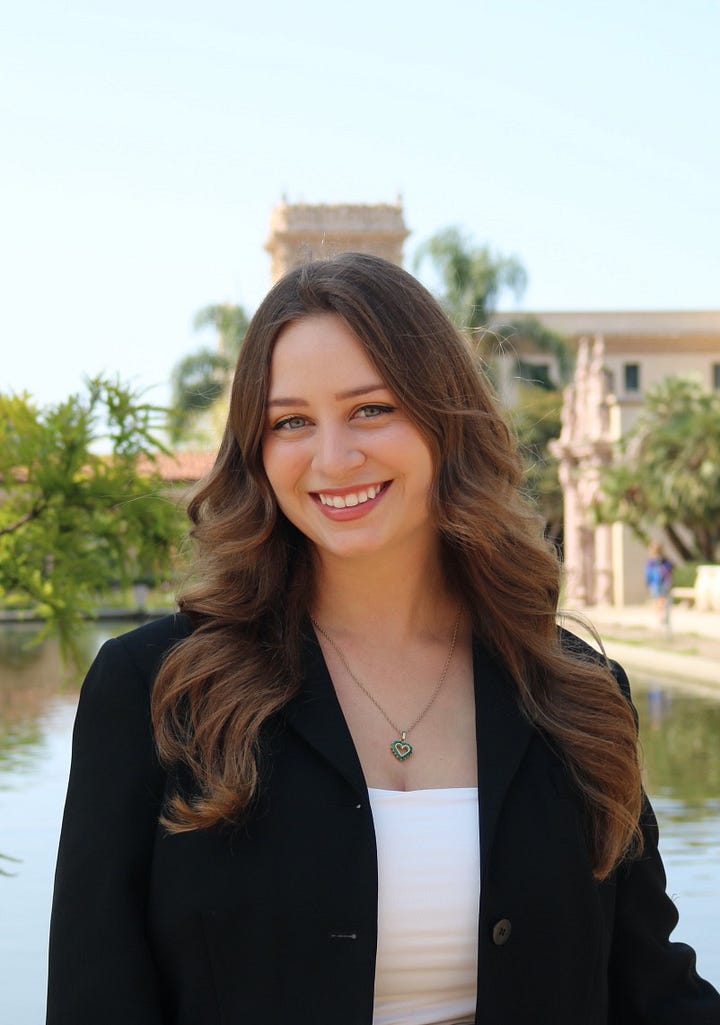
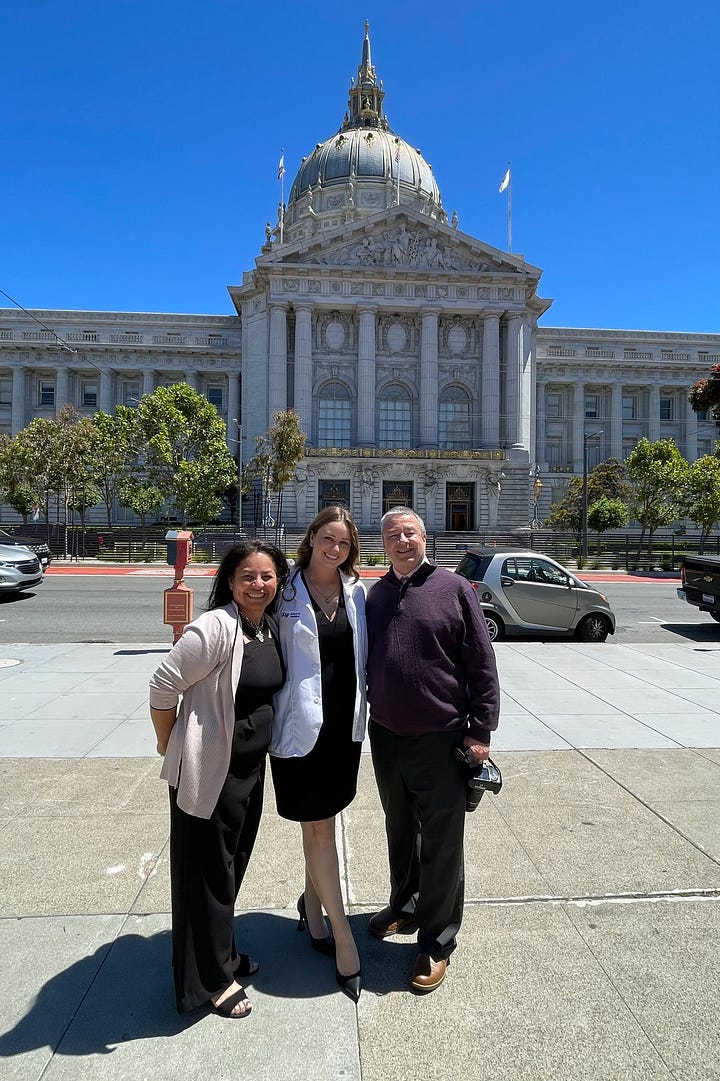
5 Pieces of Advice from Angelica
Know that if you love learning, if you’re a life-long learner, this is the life for you.
If you don’t try, the outcome will always be worse than if you do. Try and do your best. That’s all you can do. Be proud of how far you have come, and all the people you have changed.
To stay motivated, get lots of sun. Going outside, being in nature, reminds you how beautiful life can be.
Ground yourself in what interests you. Find research that aligns with your morals, it will change you as a person and keep you going.
Keep your hobbies! Even if it’s just one night a week. You are more than just medicine, you CAN be a person outside of it - in fact, it’s better for your patients if you are.
Angelica’s story is a testament to the power of mentorship, the importance of human-centered design, and the value of pursuing a career rooted in empathy. Through her work at The Better Lab, Angelica is paving the way for a more inclusive and equitable approach to medicine, one that promises a future where patients and providers create meaningful change together. As she continues her journey in medicine, she hopes to inspire others to rethink traditional healthcare systems, emphasizing that patients should always be at the heart of medical innovation.
.
.
.
Note: The Better Lab is a healthcare innovation research lab based at University of California San Francisco’s Department of Surgery and the Zuckerberg San Francisco General Hospital dedicated to improving care delivery through human-centered design. Our team combines expertise in clinical care, design thinking, and implementation science to create practical solutions for complex healthcare challenges.
The author, Harita Yepuri, BS, is a social media intern at The Better Lab. She is passionate about making health and science accessible through creativity and communication. With a background in neuroscience, her research focuses on social determinants of health, particularly working in intersections of nutrition or underserved populations. Outside of work, Harita enjoys video production, volunteering, and jewelry-making.
Edited by: Adrienne Greer, MPH, Christiana von Hippel, ScD, MPH

